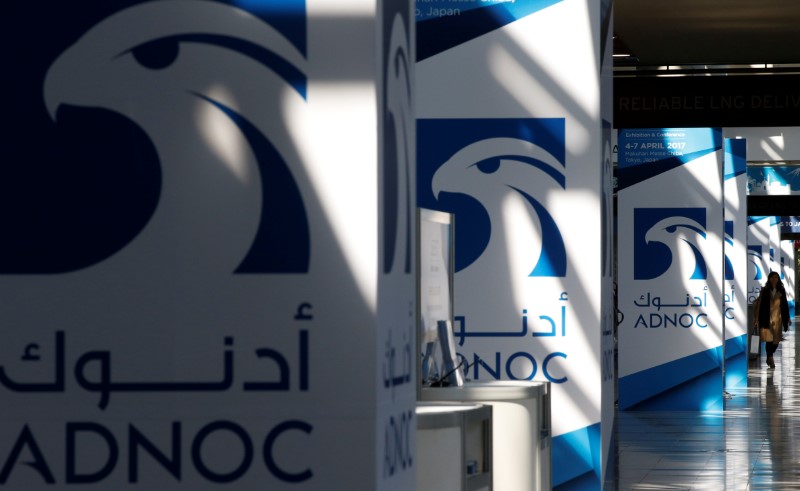By Rania El Gamal and Dmitry Zhdannikov
DUBAI/LONDON (Reuters) - Abu Dhabi National Oil Company (ADNOC) is looking to set up its own trading unit, possibly together with an oil major or a big trading house, joining other Middle East producers seeking to boost earnings via new revenue streams, industry sources said.
A sharp drop in crude prices since mid-2014 has forced the oil industry to cut costs and look for ways to boost efficiency amid competition from new producers such as U.S. shale firms.
The move by ADNOC, regarded as one of the most conservative among Middle East oil producers, is part of a wider shake-up at the state-run firm, which is seeking to become more competitive under a new management appointed last year.
On Monday, ADNOC said it could float some of its services businesses and partner global investors to help it secure better market access at a time when its budget is being stretched by low oil prices.
Four industry sources told Reuters ADNOC had held talks over the past year with oil majors Royal Dutch Shell (L:RDSa) and Total (PA:TOTF) as well as the world's biggest trading house Vitol on setting up a joint venture to trade oil and products.
Shell, Total and Vitol declined to comment. ADNOC declined official comment on plans for ventures.
Increasingly, Middle Eastern producers are looking into the viability of running their own trading firms. In May, trading sources told Reuters Iraq's state oil marketer SOMO had teamed up with Russia's LUKOIL (MM:LKOH) in a venture in Dubai to market crude.
"ADNOC is exploring a potential establishment of a trading arm but the structure is yet to be decided," one industry source familiar with discussions said.
ADNOC has been studying whether to set up a unit such as Saudi Arabia's Aramco Trading, which markets refined products, base oils and bulk petrochemicals, or follow the model of Oman, which trades both crude and products, industry sources said.
"It all fits with the ongoing transformation of the organisation to try to make it much more commercially focused to drive revenue and profit," the first source said.
Discussions, which have continued for several months, are focusing on the best trading model with majors and traders asking for an equity stake in a venture similar to a model used by Iraq and Oman. The other option would be to split profits without giving a foreign partner equity stakes.
"Western companies are less keen on profit sharing as there is no guarantee of profits in the first years of operations," a second source familiar with discussions said.
Oman was the first Middle Eastern producer to set up trading with a 50/50 venture with Vitol last decade. The venture, Oman Trading International, was ultimately bought out by the government and is currently fully owned by Oman Oil.
Last year, ADNOC reshuffled its leadership, in a major shake-up after the appointment of Sultan Al Jaber as chief executive. It consolidated the operations of two oil companies into a new entity, and its shipping, marine and services companies into one firm in order to increase efficiency.
ADNOC has output of around 3 million barrels per day, or around 3 percent of global production.
